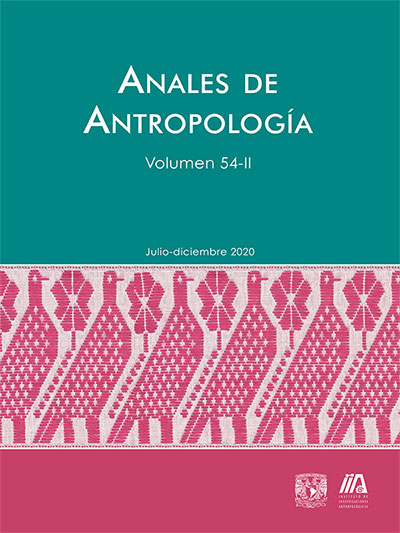Thinking through the sonority and listening of the Huave people: cosmology, ritual and social life
Main Article Content
Abstract
My objective is to analyze the way in which the Huaves of San Mateo del Mar establish a type of sociality with the Catholic saints and the mombasüik (deified ancestors homologated to the saints), through the sonority produced by two groups of ritual specialists in the religious celebration of Corpus Christi. The groups are the montsünd naab (those who play the drums) and the monlüy kawüy (those who ride on horseback). The first of them express themselves by using a reed flute, a pair of drums and several turtle shells percussed with deer horns; the latter by uttering whistles, shouts and by means of noise produced with the two skil (two batteries of 13 cowbells tied to a leather strap). My approach is ethnographic, and the results allow me to state that the aforementioned sociality has ecological, economic and political-ontological implications, since by performing the sonority in question, the Huaves seek to win the energetic gifts that the saints and mombasüik dispense, while endorsing the transcendental relationship of the alliance. The originality of the approach resides in analyzing how a society uses certain sound-musical expressions in a ritual period. This contributes to the current anthropological and ethnomusicological discussion on the topic of inter-specific relationships (human, non-human) through aesthetic expressions among the native peoples of Mexico.
Downloads
Article Details
Esta revista usa una licencia CC del tipo CC BY-NC-ND 3.0. Se maneja bajo el esquema de acceso abierto, con una licencia Creative Commons Attribution-NonCommercial-NoDerivs 3.0 Unported.
